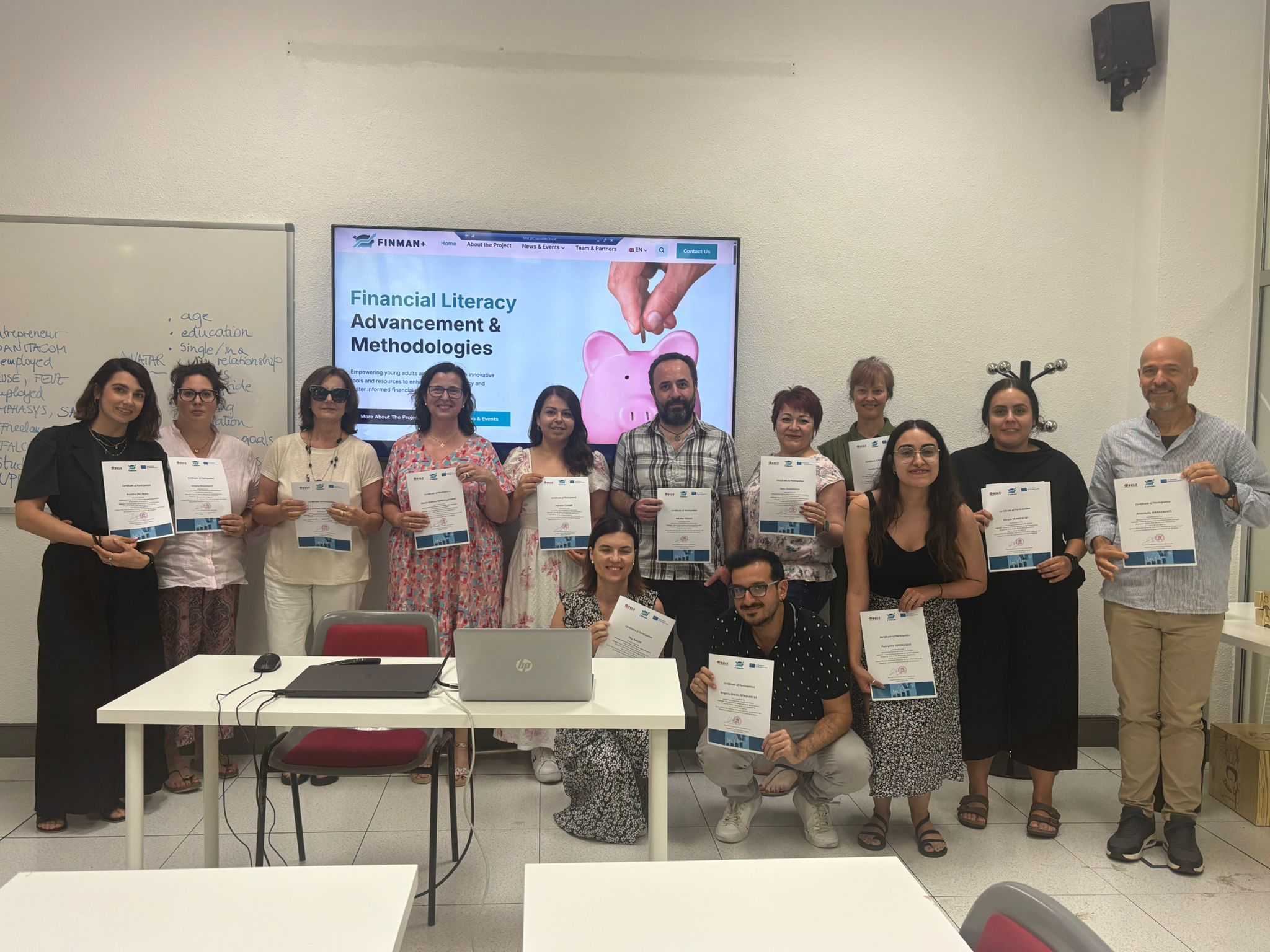Highlights from the Second Transnational Project Meeting in Zaragoza
Partners of the FINMAN+ project gathered in Zaragoza, Spain, for the second transnational project meeting, hosted by our Spanish partner Fundación Empresa-Universidad de Zaragoza (FEUZ). The two-day meeting marked an important milestone in the project’s implementation, providing an opportunity to review progress across all work packages and set strategic priorities for the upcoming months.
Project Progress and Planning
The meeting began with an overview from project coordinator Tina Baloh (UPI Žalec), who presented updates from each work package and outlined the next key deliverables. The consortium confirmed satisfaction with the ongoing online coordination meetings and reaffirmed the use of the AdminTool for smooth task tracking and financial procedures.
Dissemination activities were another focal point, presented by WP2 leader Nikolay Tsolev (RCCI). With 23 articles to be published over the course of the project, partners committed to increasing their activity reporting and sharing of national insights on financial literacy. A detailed dissemination calendar and task allocation will be implemented in the coming weeks.
Spotlight on Training: Scenario-Based Learning in Action
A central feature of the Zaragoza meeting was the training activity for adult educators, which served both as a capacity-building event and a co-creation opportunity within Work Package 4. Participants explored innovative educational methodologies aimed at increasing engagement and learning outcomes in financial literacy education.
The training placed a strong emphasis on scenario-based learning (SBL) – a method that immerses learners in real-life financial situations to enhance their decision-making and critical thinking skills. Through structured scenarios, educators simulate everyday financial challenges such as budgeting, debt, and digital payments, empowering learners to apply knowledge in practical contexts.
Additionally, the session introduced the use of learner personas – fictional but research-based profiles representing different types of young adults aged 25–30. These personas help tailor training materials to match specific learner needs, motivations, and socio-economic backgrounds. The co-creation process is guided by these personas to ensure relevance, diversity, and impact across partner countries. The results of the co-creation sessions will be crucial for the next steps of the project, including the Training for young adults in April 2026, hosted by Emphasys Centre (Cyprus).
Stay tuned for more updates as we move closer to delivering impactful, scenario-driven financial literacy education across Europe!







